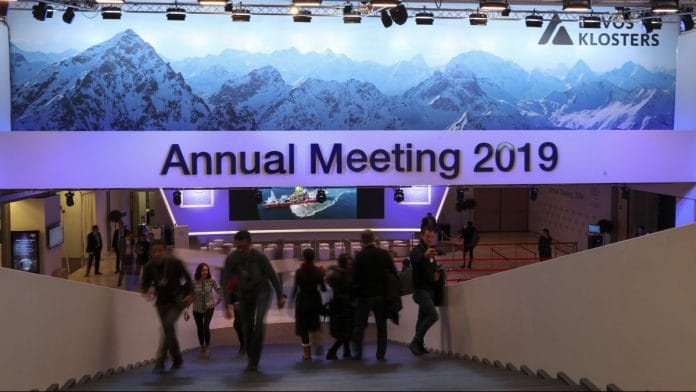Skills and geography have until now helped insulate many white collar jobs from the impact of globalisation. But not anymore.
The organizers of this year’s World Economic Forum have done their traditional best to introduce another buzz phrase as the theme for the annual gathering in the Swiss Alps. So just what is “Globalization 4.0”?
First, a bit of economic history.
The world has been pursuing some sort of globalization — the integration of economies through the exchange of goods, people and ideas — since the dawn of time. But economic historians tend to posit we’ve seen three phases of globalization so far.
The first, dating from 1820-1914 came alongside the advent of steam power and the industrial revolution while the second lasted from the end of World War 2 to roughly 1990. That’s when we entered the latest era – a period of what some have dubbed “hyperglobalization” coinciding with the advent of the internet, the fall of the Berlin Wall and the rise of emerging economies such as China and India.
Which brings us to the fourth wave of globalization, which some argue we are now entering.
The simplest way to think about it: If all previous waves were about the trade in goods then the next one is about digitally-enabled services. Or, put in a darker way, if in the rich world the last surge of globalization was about lost blue-collar jobs this one is coming for the white-collar workers.
“That’s what the future of globalization will be and that’s what Globalization 4.0 is,” said Richard Baldwin, whose new book “The Globotics Upheaval’’ offers a sobering take. “It’s the opening of service sectors in rich countries to competition from poor countries with all the pluses and minuses in the service sector that we saw in the manufacturing sector.”
Also Read: Year of reckoning follows men (and one specific woman) to Davos
World Economy Wobbles on Eve of Davos With Politics to Blame
Baldwin argues that ever-faster data connection speeds and new artificial intelligence tools like machine translation (think real-time Google Translate for the world) are opening up a wide range of skilled services jobs in rich countries ranging from architecture to accounting and web design to new competition from practitioners in emerging economies. That has raised the possibility that the tele-commuting we have all grown used to may become a global tele-migration in which the skilled migrants never have to leave home.
Every wave of globalization before has been characterized by a basic arbitrage, whether over the price of shipping or lower labor costs. The skills and need to be in a certain location have until now helped insulate many white collar jobs from the impact. But that is changing with potentially worrying consequences for the Davos set.
The blue-collar anger over the last wave of globalization that helped fuel the populism that led to Brexit and Donald Trump could soon be joined by a white-collar anger, Baldwin argues.
Also read: Global elite descending on Davos are richer than ever
For many office workers, he says, “this will have a qualitatively different feeling because you will actually see these guys who are getting paid one-tenth of what you are getting and paying no taxes and not obeying the labor standards that you have to obey, not paying the housing prices and the schooling prices. So I think a lot of people will find this unfair.’’
The potential downside is recognized by the WEF in its official definition of Globalization 4.0. The changes in business – what Klaus Schwab, the WEF’s founder, has dubbed the Fourth Industrial Revolution – are coming alongside geopolitical shifts, inequality, and climate change. All of which, the WEF argues, have “changed our world in a way that our traditional systems are unable to respond to.’’
This year’s forum is therefore not just about recognizing that a new era is upon us. It is about finding a response that helps both lessen the pain and avoid a new backlash, whether it be by recognizing the need for better safety nets or ensuring economic growth is more sustainable. -Bloomberg






